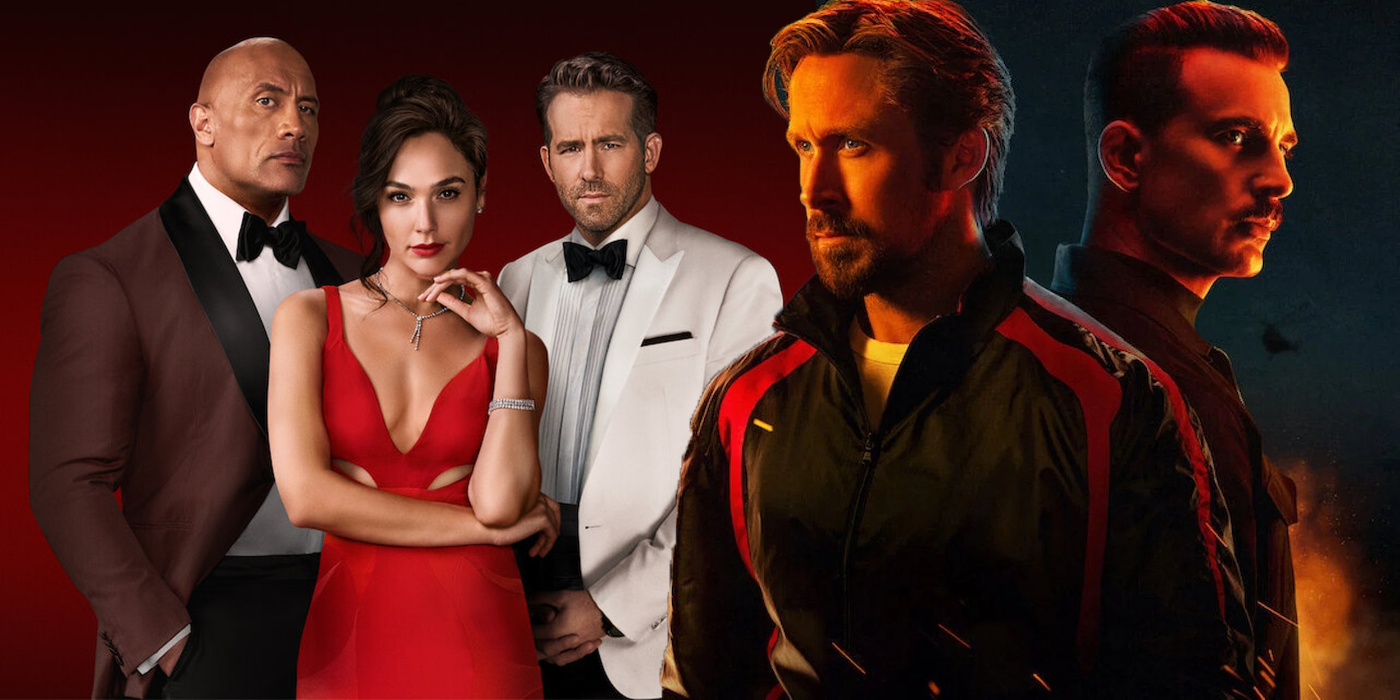Netflix's latest would-be blockbuster action flick, The Gray Man, starring Ryan Gosling, Chris Evans, and Ana de Armas, is the latest film in a troubling trend that signals the streaming industry incumbent's loosening grip on the market. Arriving on the heels of the service losing subscribers for the second quarter in a row, The Gray Man clocks in with Netflix's most expensive movie budget to date, costing the streaming service $200 million. While the film has been a success, dominating Netflix’s Global Top 10 chart since its release, The Gray Man's budget and marketing are exposing Netflix's vulnerabilities in the streaming wars.
The Gray Man, a spy action-thriller and adaptation of the novel by the same name by Mark Greaney, is directed by the critically acclaimed duo of Anthony and Joe Russo, most famous for MCU films like Captain America: Winter Soldier and Avengers: Endgame. An attempt to adapt the book series initially began development in 2011 but was abandoned before the Russos became attached to direct in July 2020, announcing that Academy Award nominee Ryan Gosling and long-time Russo collaborator/MCU alumnus Chris Evans were set to star in the film. Following a successful launch, spending its first eight days as the #1 most watched film on the service, plans have already been announced by Netflix for a Gray Man franchise including both a direct sequel and a spin-off film.
The Gray Man illustrates Netflix's main disadvantage in the streaming wars: relying on their competition to create the star power necessary to market their films, rather than creating it themselves. As Netflix continues to lose subscribers and changes fundamental aspects of the service, original films like The Gray Man remain a key piece of their plan to retain existing customers. And The Gray Man’s streaming viewership figures were crucial to their pitch to wary investors. But the film - and many other Netflix Originals - consistently lean on expensive superstar talent to create buzz.
The Gray Man Is The Latest Example Of Netflix's Star Problem
The star power of its cast and directors is the biggest selling point for Netflix's $200-million action franchise kickoff. Almost immediately in The Gray Man trailer, audiences are introduced to co-lead Chris Evans and told by text onscreen about the MCU bona fides of the Russo brothers as directors. Their MCU outings are among the most successful films of all time, so Netflix is justified in trying to graft their new action franchise onto that pedigree. However, The Gray Man is currently the only film by the Russos available on Netflix. While the brothers are set to return with additional movies and tv shows for Netflix, they are not working for Netflix exclusively and will release new projects in theaters and on other streaming platforms. Fans of Evans will find that only three of his projects - The Gray Man, The Red Sea Diving Resort, and Not Another Teen Movie - are exclusive to Netflix while his entire run as Captain America is available on Disney+. As a result, Netflix is only reinforcing Disney's position as the home for the world's biggest films and stars.
Netflix's habit of leaning on existing star talent whose most popular IP lives on other streaming services is not new to The Gray Man. One of Netflix's top 10 movies of the summer is The Sea Beast, an animated film directed by Chris Williams. That film’s press leaned on explicitly name-dropping Williams's past directing efforts, Disney films Moana and Big Hero 6 to create buzz. Red Notice, the most watched Netflix movie of all time, is one of only two films starring The Rock and the only film starring Gal Gadot currently available on Netflix in the U.S.
This creates a second, more existential issue for Netflix. As the market for streaming becomes more and more competitive, rival services such as Disney+, Prime Video, and AppleTV+ have shown a willingness to enter bidding wars for the top names in Hollywood. If $200 million projects like The Gray Man become the new norm for Netflix and they cannot own existing popular IP, their inability to create stars and major film franchises in-house will become an extremely costly problem. It's one that may see them lose their lead in the streaming wars when that once seemed insurmountable.


